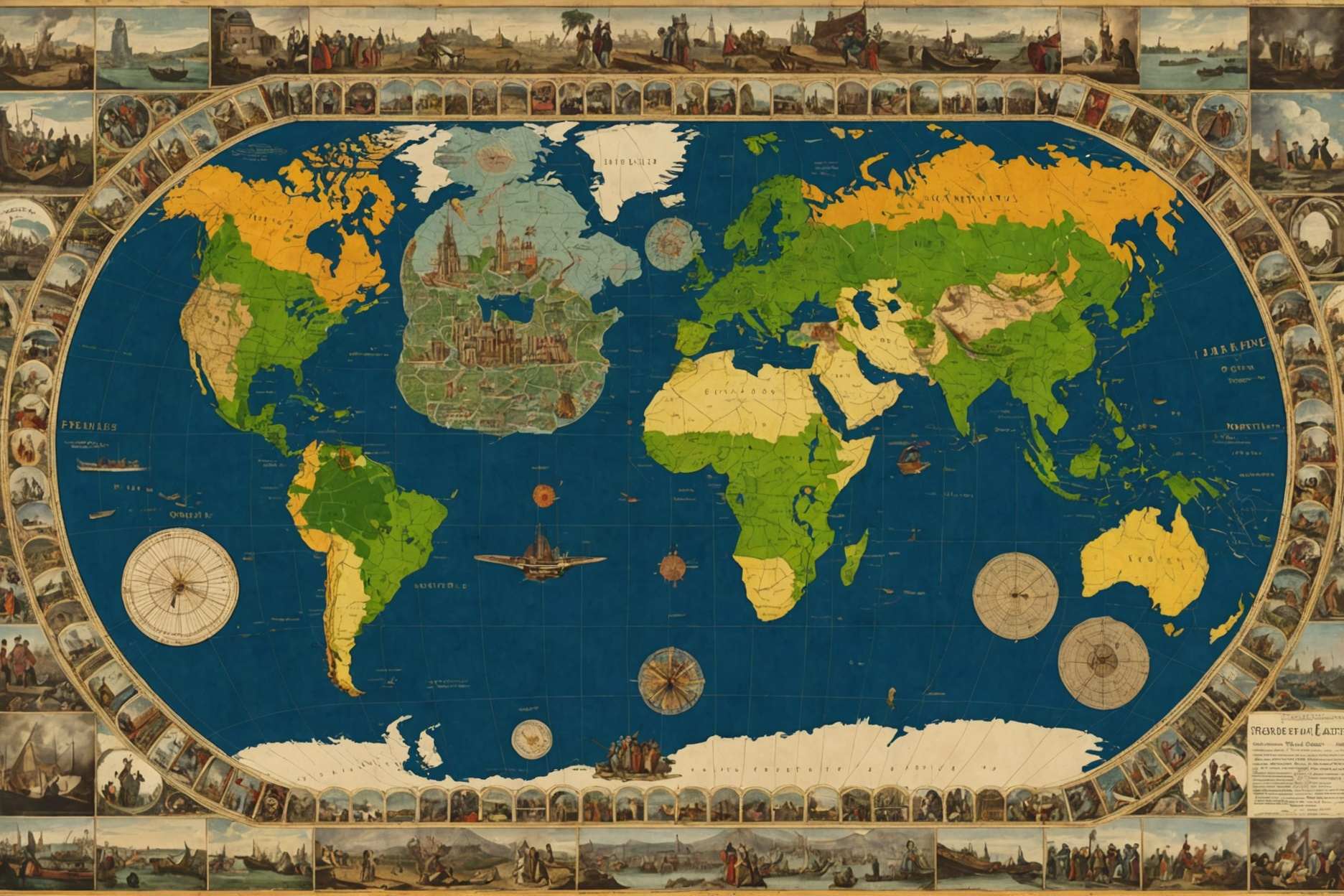Investigating the Financial History of the World: A Succinct Outline

Right now, we comprehend the idea of equivalent trade, which includes giving something of equivalent worth to what we get. This rule holds critical importance in the financial domain. Starting from the beginning of human progress, social orders have tried to guarantee fair exchanges. Albeit the strategies have developed, the quest for equivalent trade stays obvious. Today, we will look at key verifiable minutes that delineate the development of the worldwide economy.
Bargain Framework
The earliest reported deals date back to 3000 BC, when coins and paper cash were not yet imagined. During this period, people took part in purchasing, selling, and trading labor and products in light of common understanding of significant worth. This training is known as \deal exchanging.\ Contemporary instances of trading incorporate trading filtered water for food or home cleaning administrations for medication. Regardless of being an old strategy, dealing stays a reasonable exchange choice today, especially in limited scope, minimal expense exchanges free of bigger corporate designs.
FIRST METAL COINS
While dealing was commonsense, it had a constraint: assuming a purchaser needed labor and products that matched the merchant's ideal worth, exchanges would vacillate. To resolve this issue, the Realm of Lydia, which existed from 1200 BC to 546 BC in what is currently Turkey, is credited with presenting coins produced using a gold-silver combination called electrum. This advancement fundamentally smoothed out exchanges, upgrading accommodation for purchasers, and before long turned into the favored mode for exchange.
FIRST PAPER Cash
Following the reception of coins as an exchange standard internationally, we should direct our concentration toward China, the origination of paper and printing. While coins are without a doubt more helpful than bargaining, they present their own difficulties, like the lumbering load of conveying huge amounts. To ease this, during the Tang Tradition, another strategy arose: residents could store their coins with a confided in specialist and get a note that addressed their cash. Introducing these notes in exchanges guaranteed dealers of installment security, and after some time, these notes acquired identical worth to the coins they addressed. Hence, conveying a paper note worth 20 coins demonstrated more reasonable than carrying around weighty coins.
BITCOIN
Regardless of the proceeded with significance of coins, paper cash, and trading in the present economy, another type of money has arisen lately. With the ascent of the web and computerized advancements, selling labor and products online has become ordinary. Therefore, a computerized partner for cash has developed. Bitcoin, made in 2009 by the pseudonymous Satoshi Nakamoto, has built up some momentum as a money for the web-based local area. It works with mysterious exchanges, permitting purchasers to make buys without uncovering individual data. Nonetheless, this namelessness can likewise introduce long haul difficulties. Given its incipient status, all things considered, guidelines and systems will be laid out to consolidate bitcoin as a genuine exchange medium.
Bargain Framework
The earliest reported deals date back to 3000 BC, when coins and paper cash were not yet imagined. During this period, people took part in purchasing, selling, and trading labor and products in light of common understanding of significant worth. This training is known as \deal exchanging.\ Contemporary instances of trading incorporate trading filtered water for food or home cleaning administrations for medication. Regardless of being an old strategy, dealing stays a reasonable exchange choice today, especially in limited scope, minimal expense exchanges free of bigger corporate designs.
FIRST METAL COINS
While dealing was commonsense, it had a constraint: assuming a purchaser needed labor and products that matched the merchant's ideal worth, exchanges would vacillate. To resolve this issue, the Realm of Lydia, which existed from 1200 BC to 546 BC in what is currently Turkey, is credited with presenting coins produced using a gold-silver combination called electrum. This advancement fundamentally smoothed out exchanges, upgrading accommodation for purchasers, and before long turned into the favored mode for exchange.
FIRST PAPER Cash
Following the reception of coins as an exchange standard internationally, we should direct our concentration toward China, the origination of paper and printing. While coins are without a doubt more helpful than bargaining, they present their own difficulties, like the lumbering load of conveying huge amounts. To ease this, during the Tang Tradition, another strategy arose: residents could store their coins with a confided in specialist and get a note that addressed their cash. Introducing these notes in exchanges guaranteed dealers of installment security, and after some time, these notes acquired identical worth to the coins they addressed. Hence, conveying a paper note worth 20 coins demonstrated more reasonable than carrying around weighty coins.
BITCOIN
Regardless of the proceeded with significance of coins, paper cash, and trading in the present economy, another type of money has arisen lately. With the ascent of the web and computerized advancements, selling labor and products online has become ordinary. Therefore, a computerized partner for cash has developed. Bitcoin, made in 2009 by the pseudonymous Satoshi Nakamoto, has built up some momentum as a money for the web-based local area. It works with mysterious exchanges, permitting purchasers to make buys without uncovering individual data. Nonetheless, this namelessness can likewise introduce long haul difficulties. Given its incipient status, all things considered, guidelines and systems will be laid out to consolidate bitcoin as a genuine exchange medium.
LATEST POSTS
- 1
 Step by step instructions to Remain Spurred While Chasing after a Web-based Degree
Step by step instructions to Remain Spurred While Chasing after a Web-based Degree - 2
 The most effective method to Move toward Compensation Conversations for Cutting edge Practice Enrolled Attendants
The most effective method to Move toward Compensation Conversations for Cutting edge Practice Enrolled Attendants - 3
 Figure out What Shift Differentials Mean for Your General Attendant Compensation
Figure out What Shift Differentials Mean for Your General Attendant Compensation - 4
 The most effective method to Promoter for Cutthroat Medical attendant Compensations in Your Medical services Office
The most effective method to Promoter for Cutthroat Medical attendant Compensations in Your Medical services Office - 5
 Instructions to Distinguish the Wellbeing Dangers Related with 5G Pinnacles
Instructions to Distinguish the Wellbeing Dangers Related with 5G Pinnacles
Share this article




